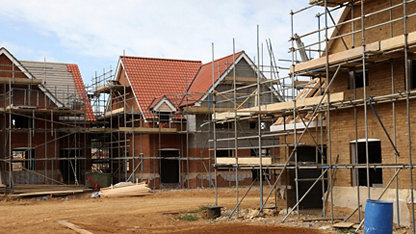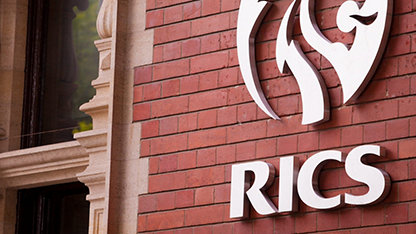RICS UK Construction Monitor, Q1 2025
- Infrastructure remains the strongest performing sector with energy a standout performer
- Financial constraints and regulatory hurdles are major challenges
- Twelve-month workload expectations remain positive but slightly softer
- Profit margin expectations have declined amid economic turbulence
- Employment sentiment stays upbeat despite broader pressures
The Royal Institution of Chartered Surveyors (RICS) has released its Q1 2025 UK Construction Monitor, revealing that construction workloads remain largely stable, with signs pointing to modest growth in the year ahead, particularly driven by infrastructure projects.
According to the survey, the overall headline net balance for workloads stayed neutral at -1%, mirroring the previous quarter’s reading. Infrastructure continues to lead the sector posting a strong net balance of +13%, with the energy sub-sector maintaining robust momentum at +35%. There are several significant energy infrastructure projects ongoing including Hinckley Point C nuclear power station as well as new and expanded offshore wind farms.
Despite the steady outlook for workloads, financial challenges persist. Credit conditions weakened over the quarter, reporting a net balance of -21%. Financial constraints remain the most significant barrier, cited by 63% of respondents, followed closely by regulatory and planning issues.
Whilst the government has worked hard to reform local planning, many respondents shared frustrations that their work continues to be held back by red tape and a lack of clarity. Some respondents noted a “brain drain” to the Middle East and North America, whilst a shortage of skills and labour continued to impact projects.
Looking forward, expectations for the next twelve months remain positive but have been slightly scaled back, with a net balance of +17%. Infrastructure is projected to lead sector growth (+32%), while private residential and non-residential sectors are also expected to see some improvement. However, profit margin expectations have worsened for the third consecutive quarter, falling to -12%.
Employment prospects offer a bright spot, with hiring expectations holding steady at a net balance of +15% over the next year.
RICS Chief Economist, Simon Rubinsohn, said: “Construction activity was largely flat over the quarter with respondents expressing a little more caution in the face of the heightened level uncertainty both at a global and domestic level. In particular, concerns about the implementation of tariffs and what this might mean for costs and economic activity as well as the potential impact of the uplift in employer NI contributions are highlighted in the feedback.
“Significantly, aside from financial issues the most cited obstacle to activity referenced in the survey is planning and regulation which chimes neatly with the government’s agenda. Addressing this issue is critical if the ambitions around housing and infrastructure are to be met.
“That said, for now the forward-looking metrics point to a relatively modest uplift in construction workloads over the next twelve months with profitability in the sector remaining under pressure.“
-ENDS-
Notes for editors
You may download a full version of the RICS UK Construction Monitor at this link.
Commentary from survey respondents regionally can be found in the economic pdf on the back pages – you are free to use these.
About RICS
We are RICS. Everything we do is designed to effect positive change in the built and natural environments. Through our respected global standards, leading professional progression and our trusted data and insight, we promote and enforce the highest professional standards in the development and management of land, real estate, construction and infrastructure.
Our work with others provides a foundation for confident markets, pioneers better places to live and work and is a force for positive social impact.
For more information
Rebecca Hunt
Kris Hicks













